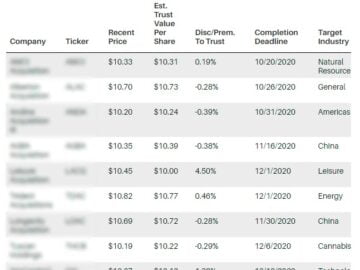Seeking out great stocks to buy is important, but many would say it’s even more essential to know which stocks to steer clear of. A losing stock can eat away at your precious long-term returns. So, determining which stocks to trim or eliminate is essential for proper portfolio maintenance.
Even the best gardens need pruning, and our team has spotted a few stocks that seem like prime candidates for selling or avoiding. Continue reading to find out which three stocks our team is staying away from this week.
Aspiring meme-stock traders have taken a shine to Roblox (RBLX) once again. While some may get lucky, correctly timing short-term trades amid current volatility, anyone planning on holding the stock is taking on too much risk if they invest in Roblox now, considering the company’s financial metrics.
Roblox provides users with a fun and immersive platform that gained major appeal during the pandemic boom. People were stuck inside and abiding by social restrictions. Many took to gaming as a distraction, which was great for RBLX shareholders. Fast forward to today, and the share price is down more than 70% from its November 2021 high.
Even more alarming is Roblox’s decline in bookings, defined by the company as “revenue plus the change in deferred revenue during the period and other noncash adjustments.” The video game producer posted a second consecutive quarterly decline in Q2, with bookings falling 4% year-over-year. Average bookings per daily active user fell 21% year over year. It seems likely that the trend will continue, at least for the next couple of quarters.
Wall Street’s earnings expectations of a $0.25 loss for the second quarter were low. Roblox missed the mark, reporting a loss of $0.30 per share. The stock is gaining attention for all the wrong reasons. Cowen analyst Doug Creutz recently initiated coverage of RBLX with an Underperform rating and a $31 price target citing an idealized valuation.
As the number 4 mobile carrier in the U.S., Cellular (USM) is not in the game of top-tier service. While the three biggest carriers are spending billions on 5G upgrades, USM waits until they’re done, and rents space on their systems, which puts them at the mercy of their larger counterparts when it comes to serving their customers.
Considering USM focuses on the more rural and ex-urban markets, it may be a while before USM customers can take advantage of 5G. The areas with sparse populations aren’t going to see 5G anytime soon because the large carriers won’t run 5G to rural areas until later in their buildouts.
USM is down more than 10% in the past month and will remain on our sell list until 5G structure is more established and the company can provide the top-tier service that customers have grown accustomed to from the other providers.
Amid rising competition in the streaming business, Netflix (NFLX) lost nearly a million subscribers in the first half of 2022, as global giants Walt Disney (DIS) and Amazon (AMZN) stepped up their game taking significant market share. Despite surging in the past quarter, Netflix is still the worst-performing stock in the FAANG group, with a loss of more than 62%.
CEO Reed Hastings had originally positioned the company as an ad-free alternative to cable. However, given the current headwinds, the CEO now says commercials are necessary to appeal to those who find the ad-free service too expensive. Netflix has increased prices several times and is now one of the most expensive streaming services. The ad-free business is also growing in competitiveness as Disney plans to launch a similar enterprise on Dec. 8.
Needham analyst Laura Martin recently suggested investors remain on the sidelines as it’s not yet clear how Netflix will perform amid rising competition. “Where do its sub losses end, given the strong competition from newer, lower-priced, deeper-pocketed streaming services? 222mm global subs may turn out to be the peak subscribers for NFLX,” said the analyst. NFLX’s share price is down 60% over the past 12 months.














